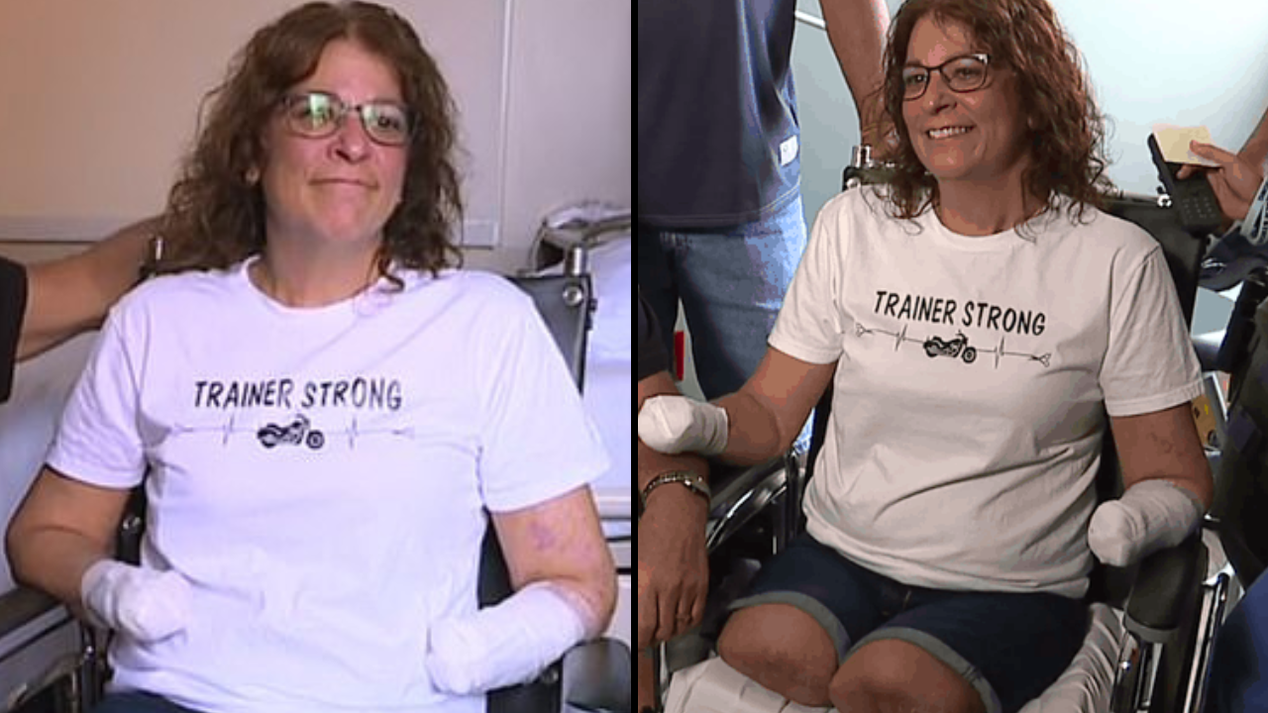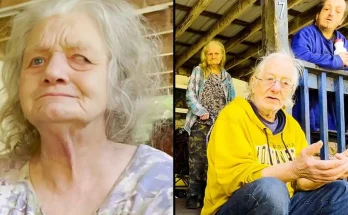
Marie Trainer, from Stark County, Ohio, had returned from a vacation in 2019 with a minor cut on her hand.
Upon arriving home, her dog greeted her with affectionate licks. She thought nothing of it – until she fell seriously ill days later.

Marie recounted to FOX News: “Four days later, I wasn’t feeling well and just got sicker and sicker.”
Initially thinking it was the flu, her husband, Matt, rushed her to the hospital.
Doctors were baffled at first, but her condition rapidly deteriorated, and she slipped into a coma.
Tests revealed that Marie had contracted Capnocytophaga canimorsus, a bacteria found in the saliva of dogs and cats.
When it enters the human body, particularly through cuts or wounds, it can provoke a dangerous immune response.
In severe cases, this can lead to blood clots, cutting off circulation to the limbs and necessitating amputation.
Tragically, Marie lost both her arms and legs.

Experts have highlighted that dogs can unknowingly spread zoonotic diseases, which are illnesses transmitted from animals to humans.
A research team at Penn State specifically warned about antibiotic-resistant salmonella. Sophia Kenney, a lead author of the study, explained:
“Especially with salmonella, we think about the role of agriculture and transmission—we think about eggs, we think about beef.
“But the thing is, we don’t let cows sleep in our beds or lick our faces, but we do dogs. We have this close bond with companion animals in general, and we have a really close interface with dogs.”

Falls Village Veterinary Hospital in Raleigh, North Carolina, echoed these concerns:
“Dogs are known for their indiscriminate habits when it comes to sniffing, licking, and eating. Their mouths can harbor bacteria such as E. coli, campylobacter, and salmonella, which are zoonotic and easily transmitted between species.
“While most healthy adults are unlikely to suffer severe effects, exposure to these microorganisms can lead to gastrointestinal issues and oral infections.
“Parasites like giardia, roundworms, and hookworms can also be spread through licks, causing abdominal pain and digestive problems in both dogs and humans.”
Since her life-altering experience, Marie has been on a long road to recovery. She has undergone extensive rehabilitation to adapt to prosthetic limbs.
Reflecting on her progress, she said: “It’s been challenging. Learning how to walk was the hardest thing, but I’m good, I’m doing good.”


